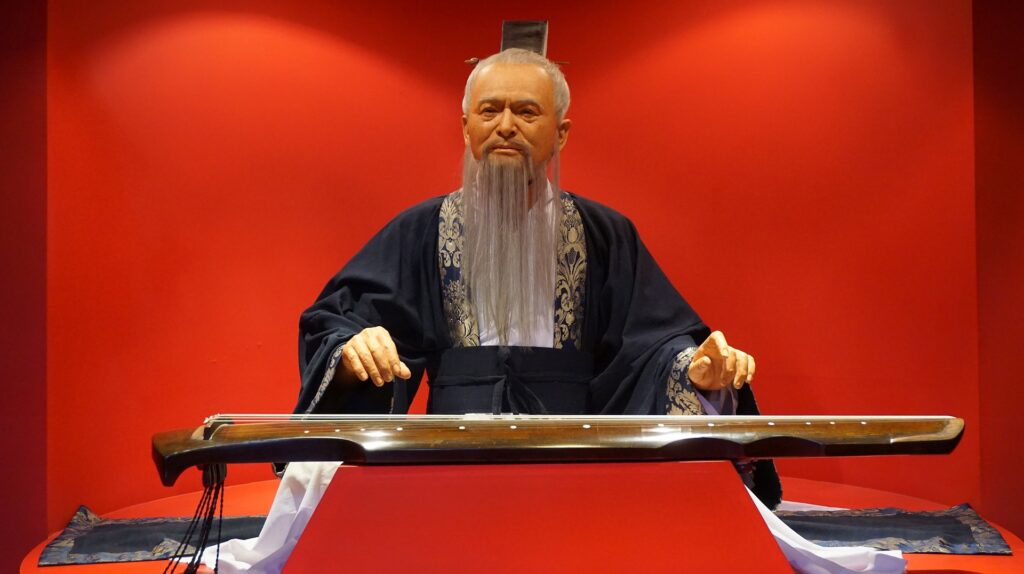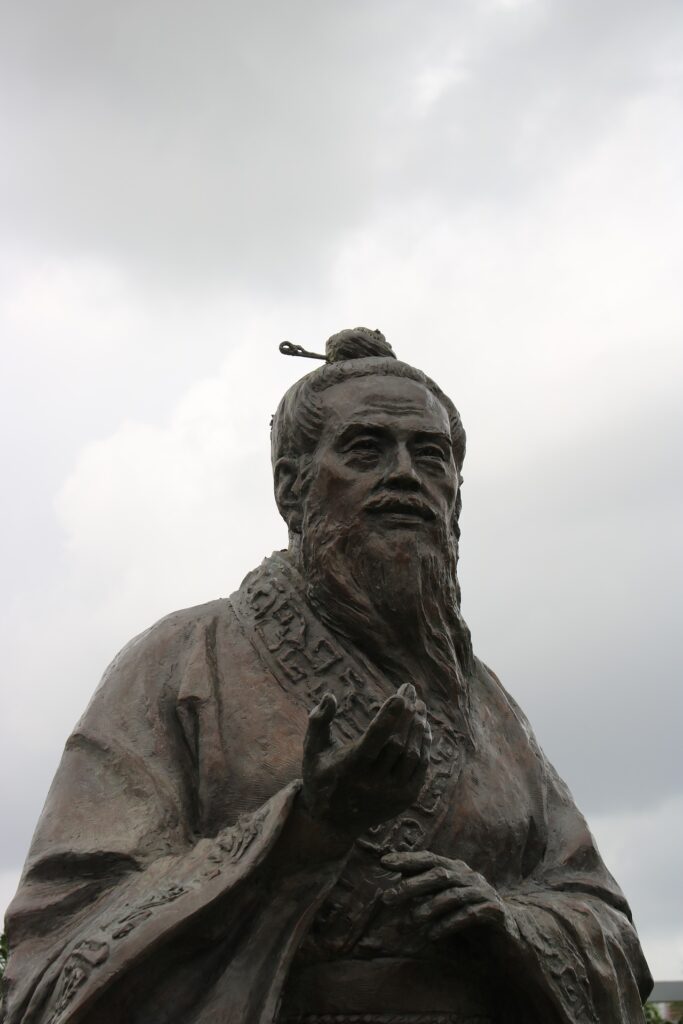
Who is Confucius? And what is the Family Context of Confucius
Confucius is an Latinized from the forecaster’s Chinese name K’ung-fu-Tzu, meaning Master K’ung. He was instinctive in a very poor but respectable family of the noble K’ung clan. His father, who was a commanding officer of a district of Lu, died when he was three years old.
He has to work tough for his livelihood and yet he was well educated. He was well known for his intellectual skills and decent conduct right from his early boyhood. He was married at the age of 19 and had a son and two daughters.
His mother died in 527 BC. Then he began his career of teaching and later founded his own school where he received old traditional human values and taught the virtues of social obligation benevolence, humanity, compassion, duty, loyalty, honesty and sincerity.
The prophet and philosopher have been guide and teacher for millions of Chinese all these centuries. He was one of the greatest teachers of the orient whose ideas have deeply influenced human philosophy and civilization of the whole of Eastern Asia. His teachings were found so valuable and influential that they became the foundation of the Chinese civil service and human conduct right up to the early 20th century.
Degeneration
Those days of the Zohu or Chou dynasty and of much degeneration and corruption. It pained him a lot and so he finally began his struggle in right earnest as a teacher against it. Soon both the rich and the poor gathered round him and attended his school.
He charged handsomely the rich but never turned away the poor but deserving students from his school. He was contemporary of Lao-tsze and came into the latter’s contact but was not much impressed by Lao-tsze’s ideas and philosophy.
Discipline Life
The philosophy of the school founded by Confucius is known as Confucianism. He was very reverently called “Master Kung”. The only reliable source of his teachings and philosophy is the Lun-yu or Analects.
It is a collection and compilation of short dialogues and sayings recorded by his disciples. Most of his disciples were young gentleman whom he was preparing for government offices. He was chiefly concerned with ethics and moral values as the basis of social and political order and personal behavior.
Discoveries of Ancient Time
He preached, propagated and defended the Way or Tao of the ancient time which had lost its significance in those days. He invested the ancient moral laws and philosophy with a new relevance and justification. He preached that every individual as a son, father, brother, subject, ruler administrator, servant etc.
Has a ethical duty and accountability to maintain law and order and follow the middle way. The cardinal virtue, included loyalty, reciprocity, dutifulness, filial and fraternal affections, good manners, trust, closeness etc.

He sought after that people lead an honorable life and follow the teachings of the wise and ancient masters. He said that he was simply a “Transmitter” and not a “Maker”. He compiled and collected ancient writing, music and poetry. He did not start a new religion or cult but invigorated a system of moral conduct leading to straight life.
He not at all talked of God but only about honesty and its attractiveness in everyday life. But regularly his teachings and philosophy became a religious group of reverence and Confucianism, a popular religion in China. Temples were raised in his memory, statues erected in his honour and offerings were made to him.
Beliefs in Buddhism
The master Confucius was a modern-day of Buddha in India. He alleged in supreme power and regarded family to the fundamentals significance. Later Confucianism acquired the elements both of Buddhism and Taoism. During the 4th centuries between 202 BC and 220 AD China was ruled by the emperors of Han Dynasty.
They followed Confucian precepts and main beliefs of regulation their administration and Confucianism was very popular. He preached high opinion of the elders and ancestors, right conduct and prevention of extremes so as to have desired union and balance in life.
He also taught that monarch should be like a father to his subjects who should love and obey him. These commandments and thoughts of Confucius have been quite significant all these centuries in China and at times formed the basis of Chinese administration during the civilizing Revolution of Mao Tse-Tung.
Confucius sends his teachings orally and never put them to paper. They were later written by compiled by his close disciples. One of his historical compilations is the “Chu Chu’ which is an analytical account of the Chinese history in the State of Lu form 722 BC to 481 BC.
Conversely people erected temples in his honour, but Confucianism never became an organized belief, nor were there regular services and worship in the temples. He never claimed any theology.
Accomplishments
He became a fable during his life time and many stories were being told him. According to a story once and his disciples passed by a memorial park where he saw a woman crying and expression of anguish. She told Confucius that she was weeping because her husband’s father was killed there by a tiger and also her husband, and then her son also met the same fate.
When Confucius asked her why she did not leave that place after a series of such tragedy, she said: in that place there is no tyrannical government. And then Confucius quickly said Remember this children an oppressive government is fiercer and more feared than a tiger. With such morals and sayings, he tried to make people genius performer.
He traveled from one State to another to win the support of their rulers for his way, but although many of his disciples and followers got appointed on very high civil and administrative posts, he regarded himself failure.
